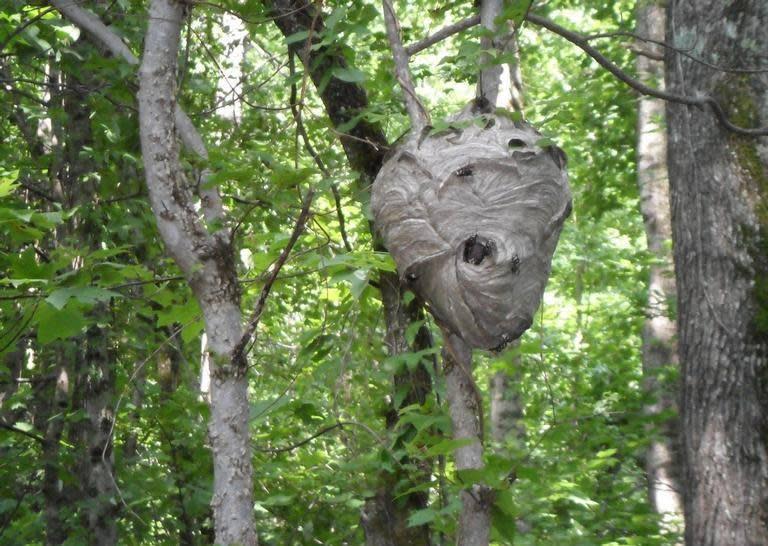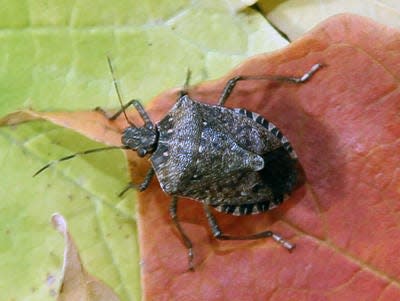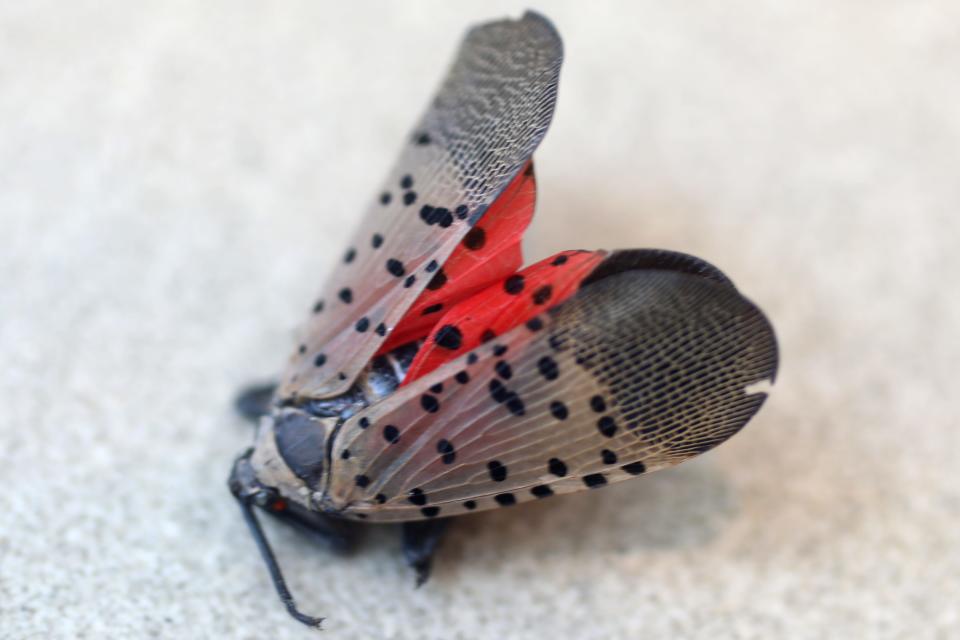Yellowjackets. Hornets. Mice. NJ exterminators are crazy busy this fall. How come?
Yellowjackets. Hornets. Mice. Stink bugs.
New Jersey's pest control industry has been “going absolutely bananas” in recent months.
So are the rodents and insects they’re hired to get rid of, said entomologist Ralph Citarella Jr., vice president of the New Jersey Pest Management Association and president of Bayonne Exterminating Company.
A week into October, New Jersey exterminators are still handling August pests such as fleas and stinging insects — and at the same rates, Citarella said. “We’ve been waiting for a slowdown,” he said. “It’s good for business but … we need a couple of weeks off.”
Mice in particular are everywhere, he said.
Exterminators also noticed an uptick in stinging insect activity, especially among yellowjackets.

Citarella said there are several reasons this surge is occurring:
Trap avoidance. Exterminators noticed seemingly smarter mice in waterfront areas in Hoboken, some of Union City and parts of downtown Jersey City. “We’re dealing with … trap-adverse and trap-avoidant mice,” Citarella said. “Plenty of videos from researchers in the field (show) mice are unwilling to enter enclosed traps.”
Big families. Mice parents can give birth to large litters, especially if the rodents are well fed. A single mouse can have thousands of babies in year. If garbage is not enclosed properly or food is left out, mice and rats have easy access to food which fuels them to keep living and reproducing.
Construction. Citarella said a real estate boom contributed to the rodent surge. Construction projects often involve demolishing old buildings, displacing mice who may scurry to a neighboring house. Some New Jersey municipalities require ongoing baiting to fend off pests at demolition sites. Some places in Hudson County, where Citarella primarily works, require monthly pest control by professionals for the duration of a project, from demolition to completion.
Environment. When days become shorter, insects begin a “seasonal downturn” and some hibernate. But September saw 80-degree, summer-like days even as the sun set earlier.
“Insects are such simple creatures, they’re essentially digital in response to their environment,” Citarella said. “They have these two conflicting instincts banging away and no way to resolve it because they don’t have a central nervous system.”
More: To stomp, or not to stomp? Has NJ's war on spotted lanternfly been a bit of overkill?
More: Spotted lanternfly population down in NJ, but insect likely to be a long-term resident
As a result, insects exhibit “weird activity,” like building nests in unusual places. Recently exterminators have found nests in warehouses and similar indoor spaces quite close to humans — hornet nests in particular. Typically, hornet nests sit high in trees.
There are not necessarily more bugs and rodents around, but they may be more noticeable given that they are closer to people.
Intense rain lately also drove rodents and insects indoors and into sewer systems to take cover.
The stink bugs are here!
Meanwhile, many North Jersey residents are seeing an abundance of Asian stink bugs around their homes this time of year as they start to seek out a place to hibernate for the winter.
The bugs, which are native to China and Japan and first showed up in New Jersey in 1999, have become a serious pest to homeowners and farmers. During summer months, they feed on apples, peaches, corn and beans. Then, as nights begin to cool, they start to look for a warm place to sleep through the winter.
A lot end up spending the winter inside walls. Remember to keep garage doors closed — otherwise stink bugs will fly in and hibernate in the garage.
If the bugs do get inside your home, don't worry. They're not breeding or multiplying or feeding — they're just hibernating.

Still, if you get large numbers of them in your attic you can start to notice a nasty skunk-like smell.
There are several ways to get rid of the bugs inside a home. You can simply vacuum them up — both dead and alive — though some recommend using a small dust-buster device rather than a large vacuum because if they get sucked into the machine and ground up by the propeller they can smell.
People can also make a very simple trap out of a small LED light, an empty plastic soda bottle and some tape. The neck of the bottle gets cut off, the light goes into the bottom of the bottle to attract the bugs, and the cut-off neck then gets inverted and reinserted into the newly enlarged opening at the top of the bottle.
Or, if you see a bug crawling up a wall, fill a cup with water and a small amount of dishwashing liquid. Place the cup just under the bug. Because they have a tendency to drop straight down when they sense danger, they will fall into the cup.
Expert advice to keep your spaces pest-free
Citarella advises people to properly close doors and windows and check for tears in their screens to keep pests outside. People should also patch even small holes around their homes; mice and rats can squeeze into spaces the size of a dime and quarter, respectively.
Some bugs, like German cockroaches, aren’t as easy to prevent because they can get carried inside with your packages.
“Having good sanitation and no open maintenance issues in your home will allow you to realize you do have activity way sooner,” Citarella said. “An extra 30 minutes cleaning the house once a week could go a long way.”
Good news on spotted lanternflies
Citarella did have some good news about those infamous invasive spotted lanternflies. In Hudson County and surrounding areas, where he mostly works, he's noticed about a third as much activity of these bugs compared to last year.

They may be starting to fit into the ecosystem as invading foreign insects tend to do, he said.
While there appear to be fewer lanternflies this summer, researchers say the cause of the decline is more likely to do with weather patterns or fewer host plants than kids squishing them last summer before they mated.
This article originally appeared on NorthJersey.com: Why pest control experts see more mice, stinging insects in NJ

